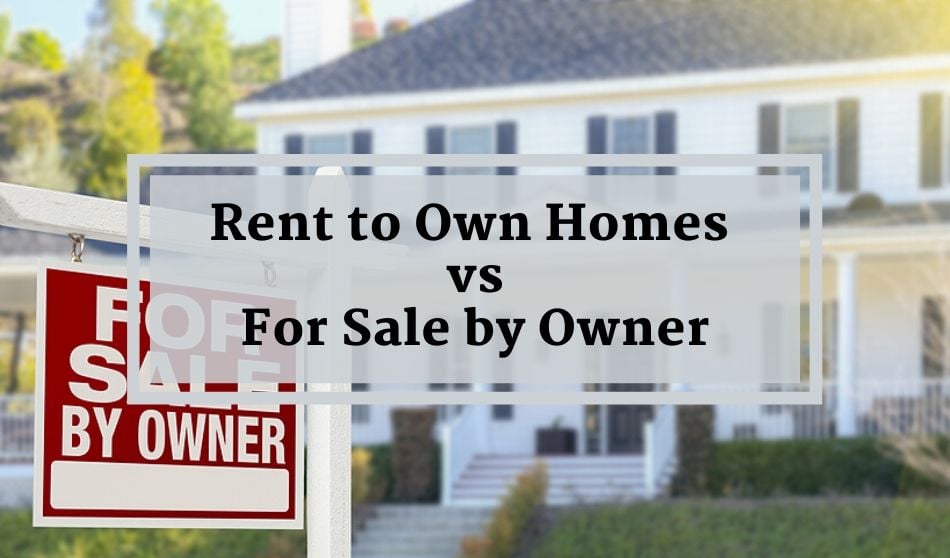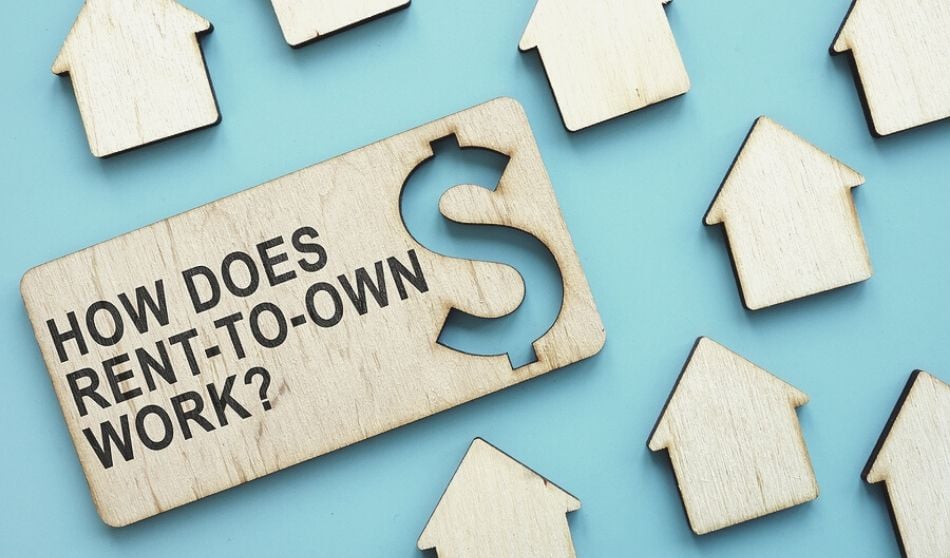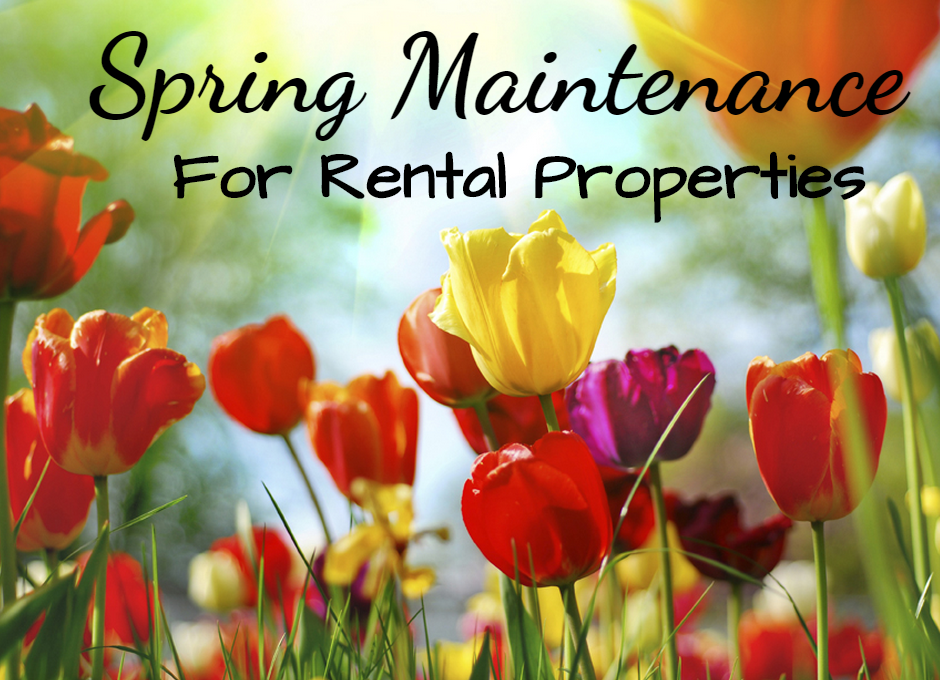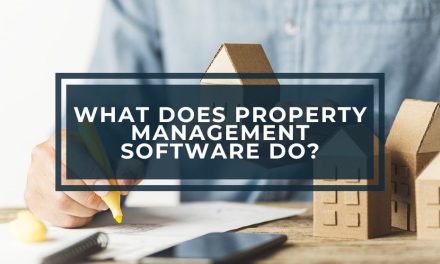
Beyond the traditional mortgage, rent to own homes and homes for sale by owner are two unique points of entry to homeownership. Sellers and investors may also find it suits their needs to enter into a rent to own contract or sell a home without a realtor involved.
This article will highlight the pros and cons of entering into a rent to own agreement from both the seller and buyer perspective.
Rent to Own Homes
The two types of rent-to-own contracts are a lease-purchase agreement and a lease option agreement. In both rent to own scenarios, the occupant is a renter and therefore a tenant but takes on more of ownership responsibilities and costs.

A rent-to-own home starts with a seller who is also the landlord and a buyer as the tenant; both bound by either a lease purchase or a lease option agreement.
How a Rent to Own Lease Works
A contract is formed between a seller (current homeowner) and a tenant (potential or future homeowner) wherein a portion of the rent collected is credited towards the future purchase of the property. That amount may be credited either towards the down payment or towards the purchase price depending on the contract.
At the end of the lease term, which is typically two to three years (24 to 36 months), the remaining balance of the home is due.
Unlike a typical rental where the owner or property manager takes care of the maintenance, taxes, and insurance, the renter is typically responsible for those costs.
Lease Option
A lease option is also known as a lease option to buy or a lease-purchase option. When you go into a lease option for a rent to own home you are in essence paying a fee for the opportunity to purchase the home at the end of the lease term. It gives the potential homeowner a way to test-drive the home with a back door exit to the obligation to purchase it.
The renter will pay an option fee for the exclusive rights to purchase the home at the end of the lease term. In most cases, depending on the wording of the contract, the potential buyer (aka the tenant) may have the right to sell that option to someone else.
If the renter does not choose to exercise the option to purchase, they forfeit the option fee as it is not refundable. This upfront fee is also known as option money or option consideration and can range from 1-5% of the purchase price.
Lease-Purchase
Unlike the lease option to buy, a lease-purchase agreement is a binding sales agreement that the tenant will pay the balance of the home purchase price due at the end of the lease unless there is a clause for extension.
If the tenant is late on a payment, skips a payment, or fails to fulfill any requirements of the lease-purchase agreement, they would be in default and have breached the contract. The owner then may move forward with an eviction and keep all money received towards the purchase price, including the lease fee.

Buyer and seller enter into a lease agreement for rent to own homes but do not for a for sale by owner (FSBO) contract.
Rent to Own for Buyers
Benefits
- Attractive to homebuyers needing time to build credit or establish a tax history to qualify for a traditional mortgage.
- Lower upfront cost as a lease-purchase or option fee is typically 1-5% whereas a traditional down payment is 20%.
- A lease option allows a tenant to test out the home before deciding to buy.
- The price of the home might be locked at a lower rate than the market rate after the least term.
- Save on moving costs typically associated with buying a home.
Considerations
Look out for potential shady seller issues and take precautions. The landlord might not own the property so can’t legally sell it. A proper title search should be done.
Research to make sure there aren’t any undisclosed unpaid property taxes. And make sure the owner hasn’t defaulted on their mortgage to avoid being a victim of an undisclosed foreclosure.
Be sure to have the home inspected to look for hidden trouble such as lead or asbestos, plumbing, or roof issues.
Rent to Own for Sellers
Benefits
- The quality of tenant willing to purchase is likely better as they have a vested interest in the care and maintenance of their investment.
- Can attract potential buyers to a home difficult to sell.
- Take advantage of having a steady source of income without the maintenance overhead.
- The house remains your asset until the final sale.
- Money received above the rent amount and any fees collected are the sellers to keep if the tenant defaults.
Considerations
Because of market fluctuations, sellers are taking a risk locking in the purchase price at the beginning of the lease term.
A lease purchase obligates the seller but the tenant is not obligated to purchase. If a tenant doesn’t exercise their option and moves or worse, defaults on the lease-purchase it may require a lengthy and expensive eviction process. Either case, it could be costly to make any repairs if the home was not maintained property.
House For Sale by Owner (FSBO)
Although both are being sold, a rent to own home is occupied by a renter who is either contractually obligated or has the option to buy the home. This renter is under a lease agreement, but the occupant of a for sale by owner home is not. At no time in a FSBO agreement is there a tenant-landlord relationship.
For sale by owner (FSBO) can be accomplished with a traditional mortgage lender or by the seller offering financing terms and carrying the loan.
Owner Financed Homes
Some sellers choose to offer financing directly to the borrower (buyer). Unlike a lease-purchase or option, with owner financing (also known as seller financing) the entire amount received by the buyer is credited toward the purchase of the home.
Buyer Benefits
- Flexible down payments
- A great option if unable to secure a traditional mortgage.
- Less expensive upfront costs per not paying lending fees and closing costs.
- Faster closing (avoids the mortgage underwriting process, traditional escrow, etc)
Buyer Considerations
Typically owner financing is set at a much higher interest rate that a prime or non-prime mortgage.
If the current owner still has a mortgage, the sellers’ lender (bank) might have conditions that demand immediate payment of that mortgage in full upon sale. If not paid in full, they may have grounds to foreclose. So be certain the home is owned free and clear by the seller or lender approves an owner financing situation.
You might also wish to check with an attorney to determine if a hybrid rent to own / owner financed agreement can be created such as a land contract.
Some owner financed contracts require a balloon payment at the end of 5 years and if unable to pay the balance the buyer may lose all the money paid and the home.
Seller Benefits
- A home that might be difficult to sell through a traditional lender due to age, unpermitted additions, or other home issues can be sold as-is.
- The seller can retain the title and the funds collected if the buyer defaults.
- A promissory note can be sold to an investor.
- The home can sell faster.
Seller Considerations
The buyer might default and just as in a rent to own agreement, the seller might need to move forward on an eviction to regain possession of the property. In which case the repair costs of a poorly maintained home could be hefty if the seller has to take back the property.
There may be limitations on the number of owner financing homes a seller has under contract each year and/or other limitations, regulations, or restrictions.
Final Wrap-Up
It is important for both buyers and sellers to check with a financial advisor and attorney before going into any contract or agreement. It is also important that the house is inspected, appraised, and other due diligence before entering into an agreement of purchase.
For the investor who flips houses or the property owner wanting to eliminate maintenance tasks, offering a FSBO with seller financing or a rent to own home might be a great way to give back to the community by offering opportunities for homeownership to those not able to procure a traditional mortgage.






I need information
Hi Olga, tell me more about the type of information you are looking for in detail and I’ll see what I can do to help.
Looking rent to own houseforsale from house onner